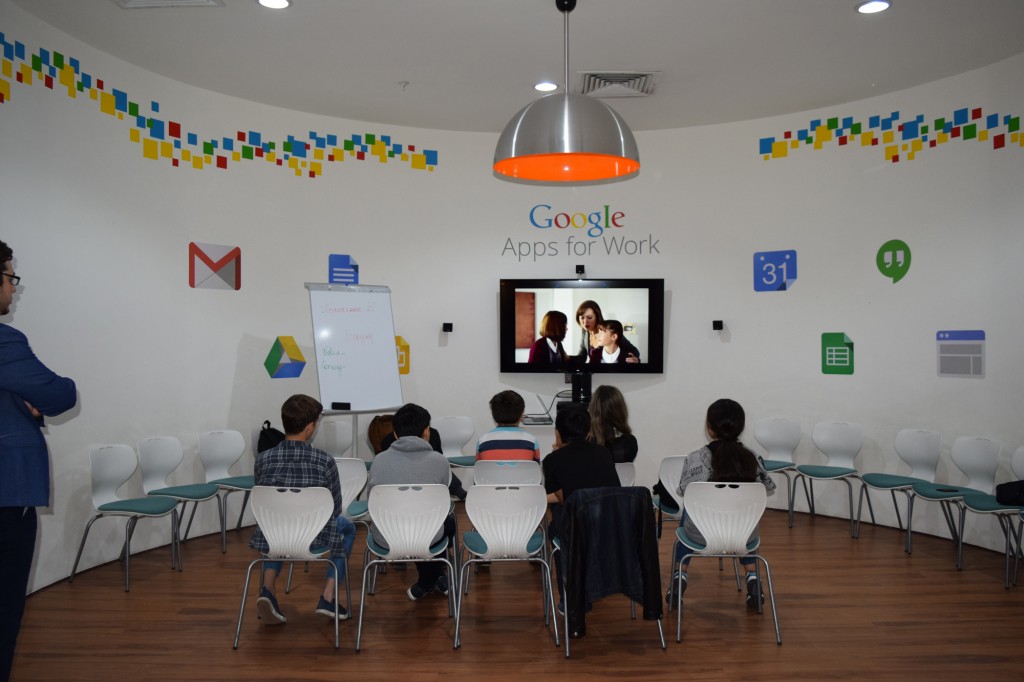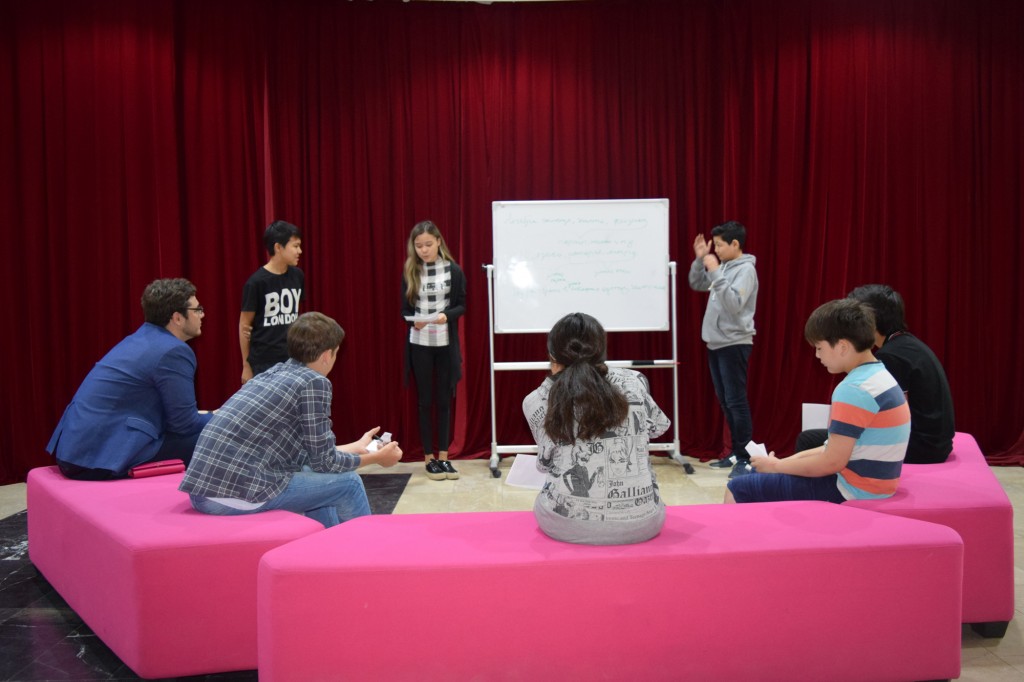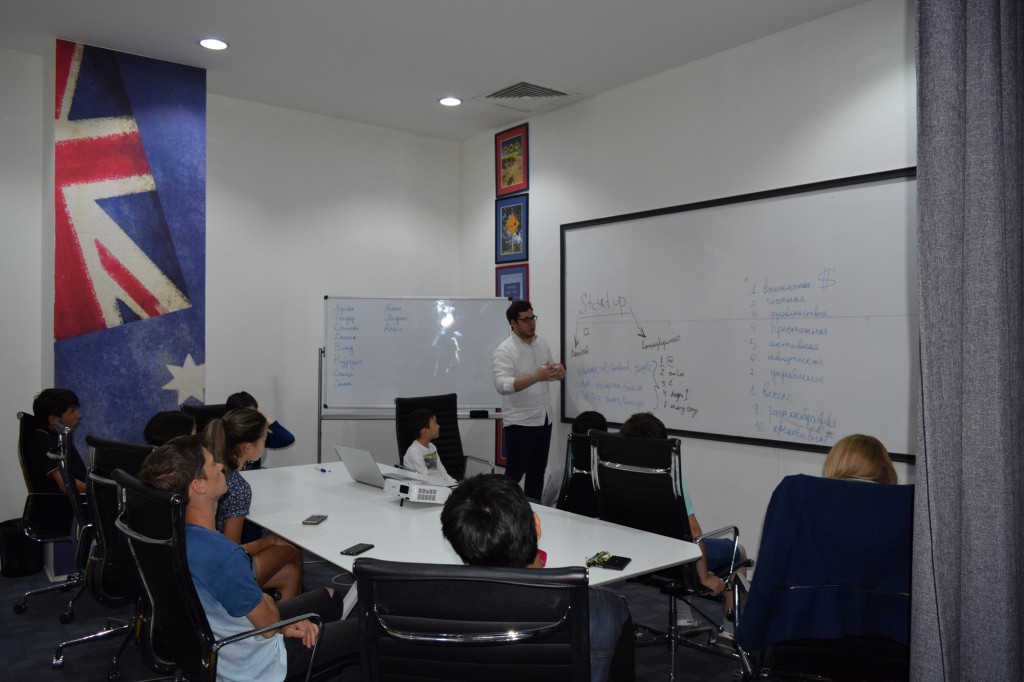ASTANA – Z Community, a project and educational platform for young people, proposes a new way for teenagers from 12–18 to spend their summer vacation: to join Z Camp, a two-week programme where participants can immerse themselves in the world of business and start-ups and find new like-minded friends.
“The programme consists of three areas: start-ups and business, new technology and programming, and active holidays. The main mission of Z Camp is to help [participants] find their business [activity] and to discuss the possibilities of our time. Our friends-mentors help us. Among them are Google employee Madiyar Aitbayev; one of the best programmers in Kazakhstan, Dmitry Melnik; designer and student at the European Institute of Design Aidana Zhanysbayeva; human resources director of an international company Elmira Kussainova and others,” said Diya Batenova, programme coordinator at Z Community, in an interview with the Astana Times.
Most camp mentors are entrepreneurs, key employees or creative people. Many of them live or work abroad, so they communicate with the teens online.
According to her, the main advantage of Z Camp is its cool atmosphere. “We change formats all the time. Now it’s a master class, tomorrow there will be a business game and the day after tomorrow we will have a competition for the strangest idea for a start-up, which will then need to be defended,” she added.
Over the summer, the Z Camp team plans to welcome around 80–100 people in Astana and Almaty. “It’s a small amount, but we emphasise our quality and our ability to devote time to each participant, to lay the first brick in building their future, full of ideas, creativity, and large-scale projects,” said Batenova. She added that the programme will definitely become an annual event with a large number of participants and mentors.
Z Camp is the first start-up camp in Kazakhstan and is one of the projects created by Z Community. Z Community was founded by Ildar Tapalov and officially launched only a year ago.
“Two years ago, myself, my partner Diya Batenova and a couple of like-minded people were discussing the importance of education in human life. Each of us had had an experience of spending more time and effort to study than was necessary. And we agreed that the 15–20 years we spend in the education system still do not allow us to fully unleash our potential and to inspire us to future achievements,” said Tapalov in an interview.
He stressed that he is not criticising teachers or educational institutions in any way. “But any well-established model of work changes under the influence of time and technology. And now the world is beginning to understand the importance of personalised education, a learning model that is right for you and for harmonious development,” he added.
This is how they came up with the idea of Z Community, a community of teenagers who want to do what they like and become the best at it. The development of the concept, through discussions with teachers, parents and children, took around a year. Some 400 teenagers in Astana and Almaty took part in their programmes while the concept was being developed.
“We had the idea of a start-up camp from the very beginning. And like all the best ideas, it was pointed out by the teenagers themselves, who get bored sitting at home all summer or wasting their time. By the way, young people actively participated in the drafting of the programme, so I am fully confident that each participant will like it,” said Tapalov about the Z Camp summer programme.
“Z Community combines the features of a business school, a platform for the realisation of ideas and a co-working space for teenagers. [Teenagers] can come to us and go through a basic course on the basics of business, programming, marketing, design and personal development and receive mentoring from entrepreneurs and professionals,” said Tapalov.
It is hoped that participants will begin working on their own creative, scientific or business projects during the camp or after. Teens are encouraged to work on any idea, even those that seem insignificant, Tapalov said.
“Perhaps some of these ideas will grow into real businesses or productions, but most will certainly remain amateur projects. More important are the skills they acquire in the course of project work, and the self-reliance they learn,” ended Tapalov.


